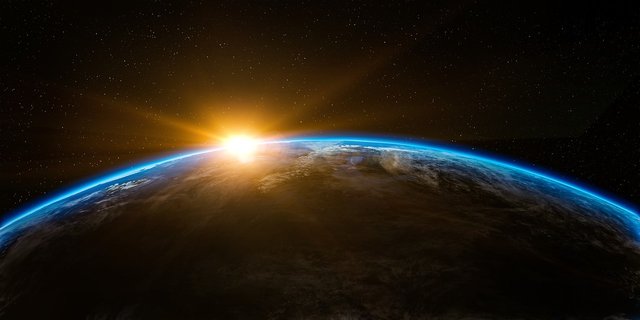Process As the Unifying Principle of Physical Reality (Part 3.2)
God, as well as being primordial, also has a consequent nature. As opposed to his primordial nature which is perfect, complete in itself, and eternal, though lacking complete actuality; God’s consequent nature is fully actual yet determined, incomplete, and “in unison of becoming with every other creative act.” [523] God is not the immovable, unchanging mover of Aristotle. The world affects God. In him there is perpetual alteration through his objectification of the world in himself. Through this “realization of the actual world in the unity of his nature,” [524] God comes to the fullness of his physical feeling.
The consequent nature of God is ‘the weaving of God’s physical feelings upon his primordial concepts.” [524] This interweaving of feelings is the “complex integration of conceptual feelings with physical feelings” [521] which was lacking in God’s primordial nature. Through this “complex integration,” the derivative nature of God is conscious. God gains physical experience from the temporal world and through realization of that world as immediate in himself, he unites it with his own unity and integrates it into his primordial side.
“Each actuality in the temporal world has its reception into God’s nature. The corresponding element in God’s nature is not temporal actuality, but is the transmutation of that temporal actuality into a living, ever-present fact.” [531] In this way, “the consequent nature of God is his judgment on the world which he saves as it passes into the immediacy of his own life.” [525] Through this conjunction with the primordial side of God, every occasion enjoys “everlastingness” and that which was originally in flux, passing away, gains completion through objective immortality in God. “The concrescent creature is objectified in God as a novel element in God’s objectification of [that creature’s] actual world.” [523]
The universe is thus constituted by a fourfold creative process. Initially, there is the one infinite conceptual realization of the world which is God’s primordial nature, deficient in actuality. This phase proceeds into “the temporal phase of physical origination, with its multiplicity of actualities.” [532] Here, the mere conceptual potentiality of occasions gains actuality through process.
The next phase is ‘the phase of perfected actuality, in which the many are one everlastingly.” [532] In this phase the actual world becomes objectified in God and occasions reach the fulfillment of their subjective aim. The final phase, the completion of the creative process in the universe, is that in which “the perfected actuality passes back into the temporal world, and qualifies this world so that each temporal actuality includes it as an immediate fact of relevant experience.” [532] In this final phase, the objectified actuality returns to the temporal world to serve as a datum for novel concrescence.
In this way the objectification of actual occasions, what we have spoken of as the passage of an entity into the past, is a temporal activity which takes place through God, through his inclusion of every actual occasion into unity with his primordial nature and his “replacing” it again in the temporal world as a datum for novel concrescence.
Power up and Steem on!

